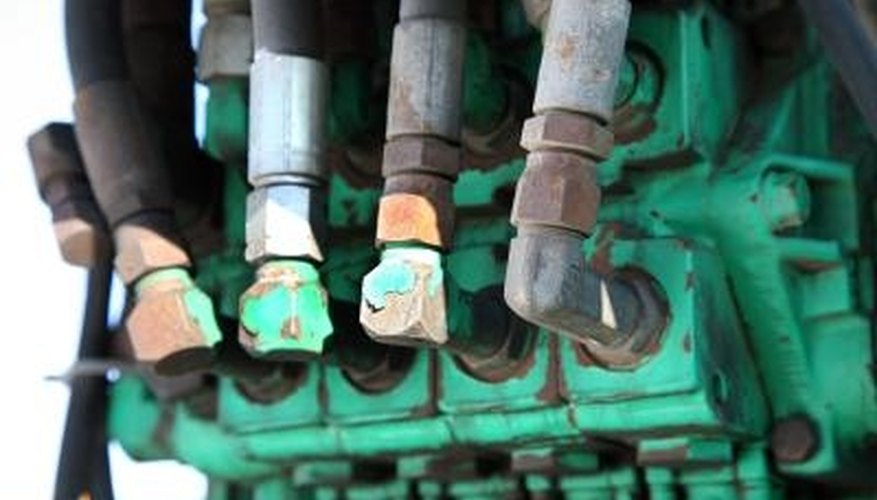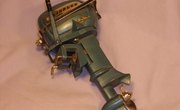
The saltwater environment can wreak havoc on your boat's inboard engine, leading to rust and corrosion, as well as flaking and peeling paint. Regularly cleaning the engine's surface and repainting it every few years can restore it to its original cosmetic condition. Repainting a boat engine also adds value to the boat, if you are planning to sell it. Before you begin painting the engine, however, you must properly prep its surface.
Items you will need
Drop cloth (if leaving engine onboard)
Engine mount (if removing engine from the boat to paint it)
Marine engine paint
Degreaser/cleaner
Can of lacquer thinner
Wire brush
Painting tape
Rags
Latex gloves
Face mask
Lay a drop cloth around the entire engine, if possible, if you are painting the engine on the boat. If your engine is in a place that is difficult to reach, you may want to remove it from the boat and put it on an engine mount before attempting to paint it.
Clean the exterior of the engine with a degreaser, using latex gloves and oil rags. This will clean off excess salt and oil.
Scrape off any existing, peeling paint and rust with a wire brush. You will need a small wire brush to get into the detailed crevices on the engine.
Clean the engine's surface for a second time, using a lacquer thinner.
Remove any parts of the engine that you don't want painted, such as the filters.
Tape over parts of the engine that you don't want coated with paint, including any hoses, wires or the engine's identification details such as brand and serial number. Certain parts of the engine should not be re-painted, including hose attachments, openings or the plate where the starter motor is mounted.
Put on your protective gear for painting, including a face mask and latex gloves.
Spray the paint on the engine, keeping the can a few inches from the surface if using spray paint. The alternative is to brush paint on the engine with a paint brush, although this can take longer and result in drips.
Spray a second coat and third coat on top of the first coat, if needed. Let each coat dry before applying the next coat.
Warnings
- It is not advisable to paint over dirt or oil on the engine, as the paint will look rough and flake off more quickly.
- Only prep and paint the engine's surface once the engine is cool.
Tips
- Buy at least two cans of the appropriate paint for your specific type and color of engine. For example, you will need a brand that is heat resistant, such as acrylic lacquer paint. You can buy engine paint in the form of spray paint or as brush-on paint at most marine-supply stores.
- When repainting your boat engine, you should use this time to inspect the engine for any parts that may need replacement.
- Read the application instructions on the paint can that you purchased before you begin painting.
- You may also prep the engine surface before painting with a metal primer that is epoxy based to prolong the life of the paint job. This is not a necessary step, however.
References
Tips
- Buy at least two cans of the appropriate paint for your specific type and color of engine. For example, you will need a brand that is heat resistant, such as acrylic lacquer paint. You can buy engine paint in the form of spray paint or as brush-on paint at most marine-supply stores.
- When repainting your boat engine, you should use this time to inspect the engine for any parts that may need replacement.
- Read the application instructions on the paint can that you purchased before you begin painting.
- You may also prep the engine surface before painting with a metal primer that is epoxy based to prolong the life of the paint job. This is not a necessary step, however.
Warnings
- It is not advisable to paint over dirt or oil on the engine, as the paint will look rough and flake off more quickly.
- Only prep and paint the engine's surface once the engine is cool.
Writer Bio
Anne Redler is a writer who has worked in research and publishing since 1996. She has published work on the topics of macroeconomics and financial markets, including articles in the "Financial Times" and "The Wall Street Journal." Redler holds a Bachelor of Arts in economics from Wilfrid Laurier University and a Master of Business Administration from Boston University.



